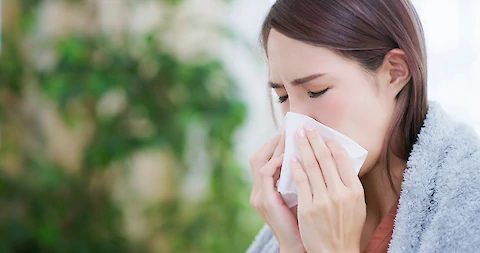
When caring for a senior citizen and you have a cold, the chances are that the loved one might end up infected. The flu spreads quickly through close contact, shaking hands, sneezing, and coughing without covering the mouth. However, with the following six tips, you can significantly reduce the likelihood of infecting the senior under your care.
Avoiding Close Contact
When you breathe, sneeze, or cough, you release the virus that causes cold into the surrounding air. In return, the people closer, in this case, the senior under care, breathe in the virus, ending up infected. For that reason, it matters to avoid hugging, shaking hands, or staying close to the senior until you recover. If possible, delegate the care duties to someone else as you focus on recovery.
Coughing or Sneezing Into a Tissue
Cover the mouth entirely with disposable tissue whenever you cough or sneeze. That way, you minimize the germs released into the air when coughing or sneezing. Remember to dispose of the tissue when you are done, and use a new one the next time you get the urge to cough. Alternatively, cough into your elbow to lessen the odds of spreading the virus through contaminated hands.
Washing Your Hands Regularly
Hands get contaminated with the cold virus when you sneeze, cough, or blow your nose. Left unwashed, you are likely to contaminate frequently touched surfaces, increasing the chances of transmitting the virus to your loved one under care. On that account, it matters to wash your hands, especially after coughing and blowing your nose. If washing is not ideal, sanitize with an alcohol-based sanitizer.
Disinfecting Regularly Touched Surfaces
When nursing a cold, there is a likelihood of contaminating frequently touched surfaces like door knobs, mobile devices, countertops, light switches, keyboards, and tabletops with the cold virus. Since the elderly person under your care can get the infection from contaminated surfaces, use chlorine, formaldehyde, hydrogen peroxide, and any other disinfectant to clean possibly unclean surfaces.
Boosting Recovery
In as much as cold clears by itself, having it for a prolonged period raises the risk of transmitting it. Given that, you shouldn't wait for the cold to clear by itself, more so when looking after a vulnerable senior. Instead, boost recovery using home remedies like gargling salt water, drinking warm water, and using saline nasal rinses. Likewise, you can enhance recovery using OTC medications like antihistamines and cough syrups.
Get a Homecare Expert to Help
Coughing into a tissue, washing hands, and disinfecting surfaces have one limitation — they do not entirely reduce transmission. Therefore, if you do not wish to take chances, get a senior helper to care for your loved one as you recover. Like you, the professional care aide will help the senior with day-to-day activities like dressing, bathing, meal preparation, transportation, and light housework.
Get Your Home Care Aides From Senior Helpers of Greater Dallas
At Senior Helpers of Greater Dallas, we offer a range of care services, including Alzheimer's and dementia care, companion care, transitional care, wellness watch, end-of-life support, and surgery assistance. Our clients include seniors who need companionship, assistance with daily activities, and specialized care. We serve Texas, Farmers Branch, Plano, Frisco, Addison, The Colony, Richardson, University Park, McKinney, and Lewisville.
Contact Senior Helpers of Greater Dallas to discuss how to help your loved one lead a decent life in their golden age.